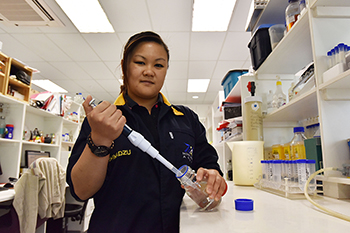Latest News Archive
Please select Category, Year, and then Month to display items
08 February 2019
|
Story Lacea Loader
![]()
The University of the Free State (UFS) offers its deepest condolences to the family and friends of the deceased student who was killed at the Durban University of Technology (DUT) during a protest action on the Steve Biko Campus on 5 February 2019.
The UFS condemns the use of firearms and undue force against protesting students.
The university’s executive management supports the plight of students at institutions of higher education around the country, encouraging the use of engagement and dialogue to resolve issues between students and university leadership at all times. We hope that these issues can be resolved amicably and to the benefit of all higher education institutions, as well as to the benefit of the country.
Released by:Lacea Loader (Director: Communication and Marketing)
Telephone: +27 51 401 2584 | +27 83 645 2454
Email:
news@ufs.ac.za |
loaderl@ufs.ac.zaFax: +27 51 444 6393
The impact of personal care products on water resources in the Free State
2015-12-14

Jou-an Chen
Photo: Charl Devenish
|
Water is of the utmost importance in personal hygiene. Most people can hardly have a day go by without taking a shower in the morning and at night. However, it is this very habit that is increasingly polluting the water resources in South Africa.
Contaminants found in pharmaceutical and personal care products have been accumulating in water masses in recent years. These contaminants especially refer to hormones in medication, as well as colouring agents and fragrances used in soap, shampoo and body lotions.
“Little information and data are available on the prevalence of these contaminants, and on how high the level of pollution really is,” says Jou-an Chen, researcher in the Department of Microbial, Biochemical and Food Biotechnology at the UFS.
Her research particularly focuses on the prevalence and impact of those contaminants.
“Because these substances have not been properly investigated, we are not sure how widely it occurs and whether it is harmful to the environment. It was precisely the lack of information that has inspired me to investigate further.”
“If we could identify the contaminants and what it is doing to the environment, it could make a valuable contribution to directives on water quality standards.”